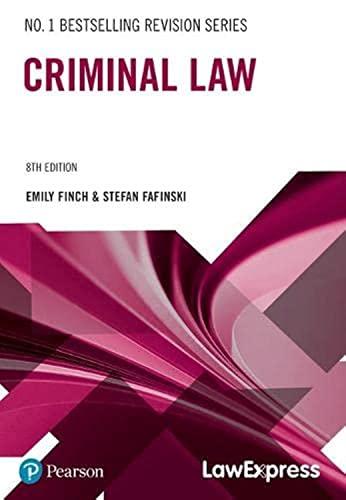Question
In 2015, the developers of the Keystone XL pipeline requested a required permit for the pipeline to cross the international border between Canada and the
In 2015, the developers of the Keystone XL pipeline requested a required permit for the pipeline to cross the international border between Canada and the United States. After conducting an EIS to assess the environmental impact of granting the permit, the EPA declined to issue a permit to the pipeline developer citing scientific modeling of an adverse impact on global warming. On January 24, 2017, the recently-elected President issued an Executive Order ordering the EPA to issue a permit to allow the pipeline to continue construction, and the EPA complied. In November 2018, after a lawsuit by immediately affected parties, a federal judge in Montana found in favor of the plaintiffs and halted the Keystone XL pipeline. Without reading the opinion, what is the most likely reason for the ruling in favor of plaintiffs?
Select one:
a.
When an EIS has been approved and acted upon by a federal agency, that agency cannot discard the EIS findings and reverse course without a new EIS (or Supplemental EIS)
b.
Executive Orders are never law
c.
The original EIS-backed decision to halt the pipeline was a taking under the 5th Amendment
d.
The EPA administrator was under several ethics investigations
Step by Step Solution
There are 3 Steps involved in it
Step: 1

Get Instant Access to Expert-Tailored Solutions
See step-by-step solutions with expert insights and AI powered tools for academic success
Step: 2

Step: 3

Ace Your Homework with AI
Get the answers you need in no time with our AI-driven, step-by-step assistance
Get Started


